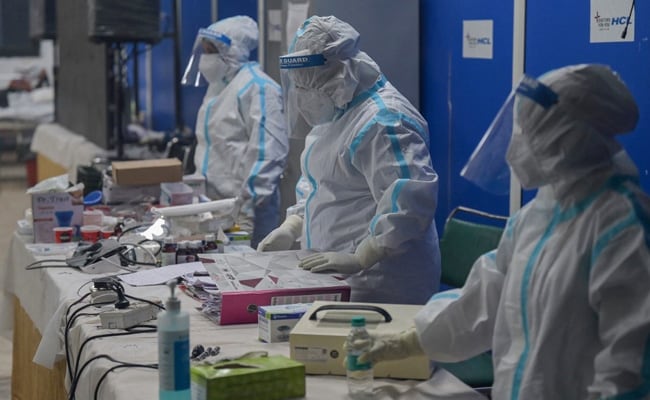“It is unusual for the corona to change so significantly,” said a researcher. (Representational)
Geneva:
A new variant of the virus that causes Covid-19 has put countries on alert as scientists scramble to understand the contagiousness and immunity to defend against it, CNN reported on Sunday.
CNN reported that the new variant, called BA.2.86 and nicknamed Pirola by variant hunters on social media, has more than 30 amino acid changes to its spike protein compared with its next closest ancestor, the BA.2 subvariant of Omicron, according to Dr Jesse Bloom, who studies viral evolution at the Fred Hutchinson Cancer Center in Seattle.
“This makes it an evolutionary jump comparable in size to that which originally gave rise to Omicron,” Bloom posted on his lab’s website.
Meanwhile, the World Health Organization designated BA.2.86 a “variant under monitoring” on Thursday, a designation that encourages countries to track and report the sequences they find”.
CNN reported that a variant under monitoring that causes more severe disease or evades existing vaccines or treatments can be upgraded to WHO’s list of variants of interest or variants of concern. XBB.1.5, XBB.1.16 and EG.5 are listed as variants of interest. WHO has not designated any variants of concern.
Only six sequences of BA.2.86 have been reported in four countries, but epidemiologists are worried they could represent many more because worldwide monitoring of variants has dropped off.
“It is unusual for the corona to change so significantly and develop 30 new mutations. The last time we saw such a big change was when Omicron appeared,” said Morten Rasmussen, a senior researcher at the Statens Serum Institut, in a news statement on the variant.
Dr Mandy Cohen, director of the US Centers for Disease Control and Prevention, said Friday that the new variant shouldn’t be cause for alarm.
“I think what we are seeing is the detection mechanisms that we’ve put in place are working, right?” she told CNN. “We are more prepared than ever to detect and respond to changes in the Covid-19 virus, CNN reported.
“We are tracking this new lineage. It has mutations that do make it distinct from other lineages circulating. And then the question becomes, what does that mean?” Cohen said. “Is it going to increase? Are we going to see more cases? Or is it going to fizzle out and not be a variant of concern?”
The UK Health Security Agency said on the matter that the preliminary trends suggest that these sequences are in four different countries in people without recent travel histories “suggests that there is established international transmission”.
The sequences that have been found are very similar to each other, which may indicate that they emerged recently and are spreading quickly, the report says, though the UKHSA notes that it has low confidence in this assessment until more sequences become available, CNN reported.
(Except for the headline, this story has not been edited by NDTV staff and is published from a syndicated feed.)


